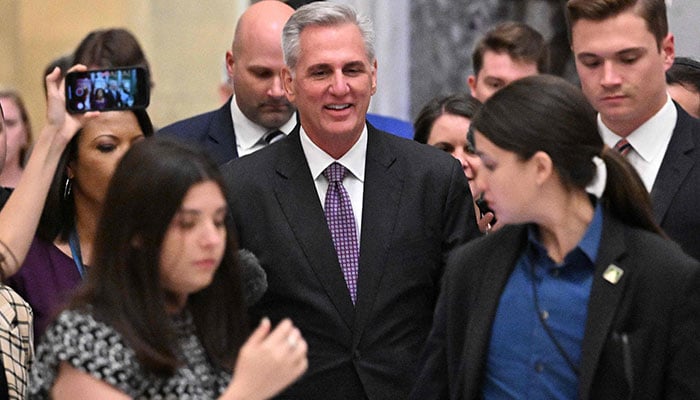US House votes to avert default, sets stage for Senate showdown
The bipartisan vote, with a tally of 314-117, was celebrated as a crucial step towards economic recovery
June 01, 2023

In a significant move to prevent a catastrophic default, lawmakers in the US House voted to raise the national borrowing limit. The agreement, negotiated between President Joe Biden and House Republicans, suspends the debt ceiling until 2024 and includes minor reductions in government spending.
The bipartisan vote, with a tally of 314-117, was celebrated as a crucial step towards economic recovery and fiscal responsibility. However, the measure must now face the Senate for final approval, setting the stage for a potentially contentious showdown.
The House passage of the bill came after weeks of intense negotiations and political brinkmanship. The Treasury had been on the verge of running out of money, raising the spectre of a disastrous default. To advance the deal to the Senate, the Republican majority in the House required support from dozens of Democrats, as 71 conservative members voted against the agreement.
Speaker Kevin McCarthy, the top Republican in Congress, emphasized the importance of the Fiscal Responsibility Act in restoring the nation's financial stability. President Biden hailed the vote as a critical step towards safeguarding the post-pandemic economic recovery, achieved through bipartisan compromise.
The focus now shifts to the Senate, where the bill will face further scrutiny and potential challenges. The Senate is expected to vote on the measure by the end of the week. Party leaders have urged their members to cooperate in order to swiftly pass the bill and avert a damaging default. However, differences of opinion persist.
Defence hawks have expressed concerns over the proposed cap of $886 billion on defence spending, which aligns with President Biden's request. On the other hand, Senators Jeff Merkley and Bernie Sanders have released separate statements expressing their reluctance to support a bill that cuts key federal programs while increasing military spending and does not impose additional taxes on billionaires.
Republican Senate leader Mitch McConnell, who played a lesser role in the House negotiations, will be expected to secure at least a dozen votes from his party. Meanwhile, the Democratic majority faces the challenge of maintaining unity within its ranks.
The outcome of the Senate vote will determine whether the debt ceiling increase becomes law, thereby ensuring the nation's financial stability. Failure to pass the measure could have severe consequences, including triggering a recession, soaring costs, and millions of job losses. As the Senate prepares for its decision, the focus remains on reaching a bipartisan agreement that can secure the nation's economic future.











